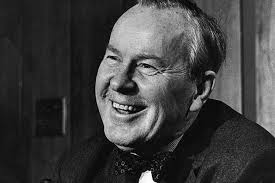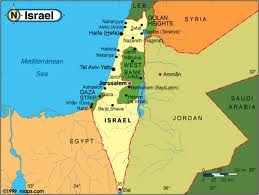Israel today is a paradox: A country faced by unprecedented threats and challenges, yet safer and more full of promise than at any time in its history.
On the one hand, the Middle East has entered a period of turmoil and chronic instability which is challenging the fundamental underpinnings of our strategic environment.

Add to this the unreconstructed nuclear ambitions of Iran, and the threat Tehran’s missiles and those of her proxies pose to our home front, and the view from Jerusalem looks stark indeed.
Yet at the same time, our tiny state is displaying strengths and capacities that continue to propel it to the forefront of global achievement, and to offer us the opportunity of greater international integration, acceptance and relevance than we have ever known. Let’s look at the challenges facing Israel.
The Middle East is in a state of turmoil and tumult the likes of which have not been seen in generations.
In its first blush, the Arab awakening represented a clear shift in the power balance between the rulers and the ruled. Where fear had prevailed for decades, suddenly it was gone: the masses were on the streets, and the leaders were on the defensive.
This shift of the internal balance of power within the Arab world seemed to promise a new dawn and a quick, popular march towards democracy.
With Syria leading the charge, however, what we are seeing now is a reversal of that trend, a reassertion of power by the traditional leadership which leaves the story very much in flux.
At a more fundamental, structural level, what we are seeing in the Arab world are clear trends which point to a crumbling of the nation-state model superimposed on the region by the western powers a century ago.
Today, the much longer-standing ethnic and religious cleavages which historically defined the region are once again coming to the fore — placing existing state structures under profound challenge. As a result, we see very little to suggest that democracy –- or anything even remotely approaching it –- is likely to flourish in the Middle East any time soon.
The popular desire for change and freedom notwithstanding, there is very limited ability (or desire) amongst key political actors to accommodate it, to assure fair and repeated elections and to allow the full gamut of values and institutions that are necessary for democracy actually to take root.
Without these things, the hopes and dreams embodied in the very concept of the “Arab spring” will continue to be not just elusive, but impossible to realize, and in their stead will come a volatile and unpredictable power struggle that may last generations.
Israel is most definitively and demonstrably not the eye of this Arab storm. The events of recent years within the Arab world have proven that we are not the story. But we do lie very much in the path of destruction that the storm may wreak.
Added to this volatile mix we also face the nuclear — and attendant hegemonic — ambitions of the repressive, terror-sponsoring regime in Iran. Tehran’s relentless drive towards nuclear weapons brought the international community to adopt six UN Security Council resolutions condemning Iran’s actions and imposing biting sanctions.
It is the combination of these sanctions and a credible military threat that recently brought Iran to the negotiating table, and we in Israel take pride in the responsible role that we have played alongside the United States and other like minded countries, including Canada, throughout this long and arduous process.
Having come so far, having brought Tehran to begin to seek a way out of the stranglehold of the sanctions, Israel believes that the interim deal reached in Geneva is a mistake.
- Through its de facto recognition of an Iranian right to enrich uranium, the core of the Iranian military nuclear program (and a right, I may add, that no other nation on earth has ever demanded or received);
- Through allowing Iran to keep its centrifuges intact and maintain other components of its military program such as warheads and ballistic capabilities;
- And through affording sanctions-relief that reverses the very psychological and economic momentum that brought Iran to the negotiating table in the first place, and needs to be in place in order to keep Tehran there.
We believe the Geneva deal weakens the position of the P5+1 in future negotiations towards a comprehensive deal. Iran continues to pose a grave threat to regional and global security and peace.
Another challenges we face, one that too often goes unnoticed, unreported and unaddressed, is the ongoing vilification of Israel and the Jewish people in the Arab and Muslim world.
Consistent reports by the ADL in the United States and others have logged thousands of antisemitic and anti-Israeli cartoons and articles in the Arab media. Meanwhile, online and in some universities, hate-speech and vilification of Israel and the Jewish people repeatedly goes unchecked.
Put simply, minds are being poisoned, particularly Arab and Muslim minds – intentionally, consistently — in ways which severely undercut our ability to forge normal, peaceful relations with our neighbors and others around the world.
Which brings me to the Palestinian issue.
Israel has sought to live in peace and coexistence with our Palestinian neighbors from the outset. In 1947, when the United Nations voted to partition the British mandate into two states, one Jewish, one Arab, we said yes, the Arab states said no and launched a war to destroy us.
In the many decades since, particularly in the 20 years since Oslo, we have made repeated offers of territorial compromise, we have withdrawn from territories, removed ourselves from governing the daily lives of Palestinians, recognized the need for a Palestinian state, and more, but we continue to come up empty-handed.
Many ordinary Palestinians no doubt yearn, as we do, for the simple blessings of peace. No doubt many of Israel’s actions have impacted negatively and left Palestinians feeling victimized or worse. But it is a simple, undeniable fact that this conflict began long before a single Israeli community was established in the West Bank.
This conflict began with the Arab world’s refusal to accept our very right to exist. In the words of a notable Nobel Peace Prize laureate: “The people of Israel have the right to know that their national existence is not at stake. That seems to me to be fundamental. Efforts to bring peace and all its benefits to the Middle East will be of no avail unless Israel and the people of Israel are released from the overhanging fear which naturally envelopes the country as a result of the threats of destruction and the political and economic warfare directed against it.”
That quote is not from Menachem Begin or Anwar Sadat or Jimmy Carter in 1979, or Yitzhak Rabin or Shimon Peres in 1994, or Barack Obama in 2008. Those were the words of a certain Lester B. Pearson, at the time foreign minister of Canada, in the House of Commons in Ottawa on January 24, 1956.

Today, there is simply too much evidence that the same core of the conflict which Pearson spoke of then continues to dominate the Palestinian consciousness and political program even now:
- The glorification of terrorists,
- The consistent denial of any Jewish history in — or connection to — the holy land,
- The unwavering demand for a so-called “right” to flood Israel, even after a Palestinian state is established, with the descendants of the Palestinian refugees created by the wars of aggression against us.
All these continue to serve as profound obstacles to the peace we seek.
Put all this together and you have a neighbourhood that is neither stable, nor predictable, nor easily manageable, nor, from an Israeli perspective, particularly peaceable.
Danger lurks. Our inbox is full.
So what are the policy take homes? What is Israel doing in response to these challenges?
As regards the turmoil in the Arab world, caution is the name of the game. In a region that is likely to remain in flux for years, if not decades, Israel will be even more cautious than ever in assessing the threats around it.
While always remaining ready to seize new diplomatic opportunities, outsiders’ promises and wishful thinking will not be allowed to substitute for realistic assessments, and our own efforts to deter any misguided adventurousness on the part of our neighbours.
On Iran, Israel will continue to work with the United States and other like-minded states to ensure that the diplomatic effort to end its military nuclear program achieves the necessary goal.
The precedent of North Korea, and the time the international community took to act against severe human rights violations and aggression in places like Rwanda and Yugoslavia, teach us that freezing the situation is not enough.
We need to roll back and dismantle Iran’s enrichment capacity in its dual uranium and plutonium tracks. Our common interest is not just ensuring Iran doesn’t have military nuclear weapons now; it is to prevent Iran from having the capacity ever to build such weapons.
We believe in and support a negotiated settlement. But one that ends the threat, not one that perpetuates it.
As regards the Palestinian issue, the policy take home is simple: Israel will continue to negotiate with the Palestinian leadership in order to reach a fair agreement — one which allows them to realize their legitimate national aspirations while also safeguarding ours.
We are ready for Palestinian statehood and for territorial compromise which will resolve the issue of the settlements.
But we also insist that the Palestinians recognize our own inalienable national rights and abandon any further claims on our country, educate their people that their imagined right of return does not exist in theory and will not take place in practice, and agree to security arrangements that will safeguard our political accord.
Settlements are not the only issue. Security, plus Palestinian reconciliation with who we are and what our rights are, are equally crucial.
In security terms, we have not faced a regular army in battle since 1973, having convinced our adversaries that defeating us through traditional warfare is impossible. Our peace treaties with Egypt and Jordan remain strong, for all the instability and challenge they’ve come under. We have largely overcome the challenge of Palestinian terrorism for the moment through a mix of deterrent and defensive measures and diplomatic initiatives. We have successfully developed a cutting edge three-tiered missile defence system, which offers an effective response to the missile threat posed by Hezbollah and others.
Meanwhile, in economic and diplomatic terms, Israel is more integrated than ever in the global economy and the international system, more able not only to look after its citizens and realize their dreams of a better, more prosperous future; but also more able to make a tangible — and recognized — contribution to global well-being.
Which brings me then to the heart of my remarks here today — the Canada-Israel relationship and how we can carry it forward.
As you know, Israel’s eight million souls live a territory that would fit pretty comfortably in the slither of Canada between Toronto and Ottawa.

But if you stop to think for just a moment, you realize that Canada and Israel have a lot more in common and a far greater affinity than is often realized.
- The friendship which ties our two nations together is founded on the bedrock of shared democratic values and institutions.
- Both countries are a magnet to immigrants, and have benefited greatly from the infusion of new populations and energies.
- We are both very globally-minded, keenly aware that our national well-being requires markets and opportunities and friendly structures way beyond our own borders.
With our recent oil and gas discoveries, Israel is now an energy producer like Canada, with different but parallel challenges in resolving with our neighbours exactly how to get it to market.
Indeed, from its very inception Israel was understood in Canada to be a like-minded state, one which shares Canada’s values and interests, and one in whose existence, security and vitality Canada itself has an abiding interest.
The bilateral friendship that has developed through these years continues to manifest itself in burgeoning economic, scientific, medical, cultural, political, defence, juridical, agricultural and trade ties between the two countries.
Prime Minister Harper has announced that he will be travelling to the region in January, and both sides are now working intensively to ensure that this visit brings concrete outcomes that will carry the bilateral relationship to new heights.
D.J. Schneeweis is Israel’s consul general in Toronto. These are excerpts from a speech he delivered to the Empire Club in Toronto on Dec. 5, becoming the first Israeli diplomat to do so since 1976.